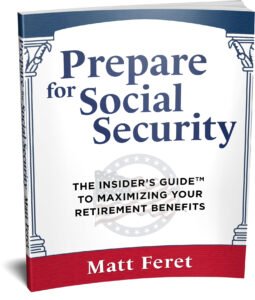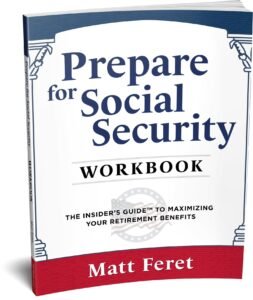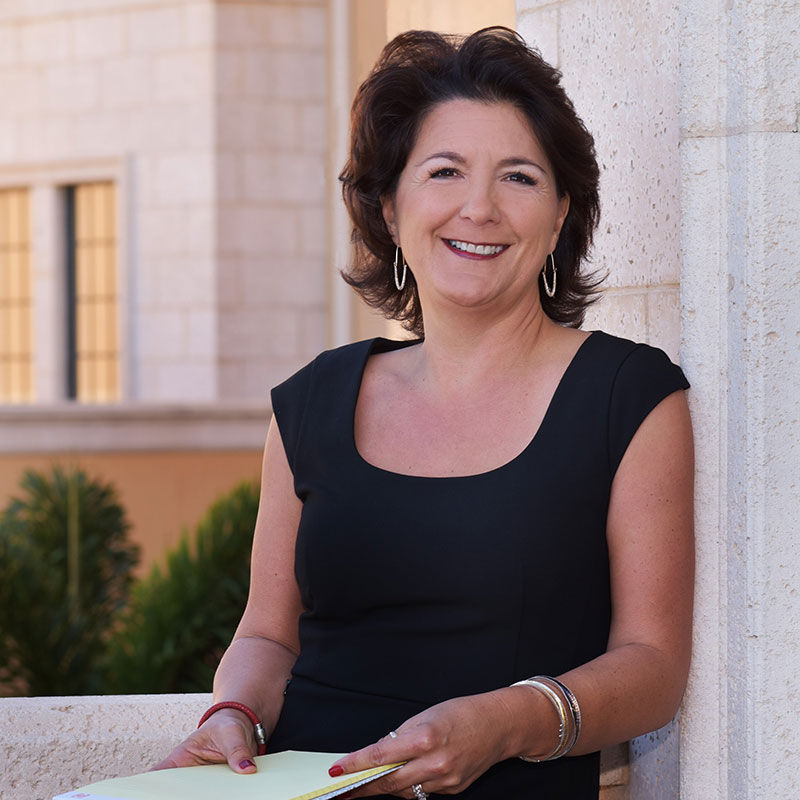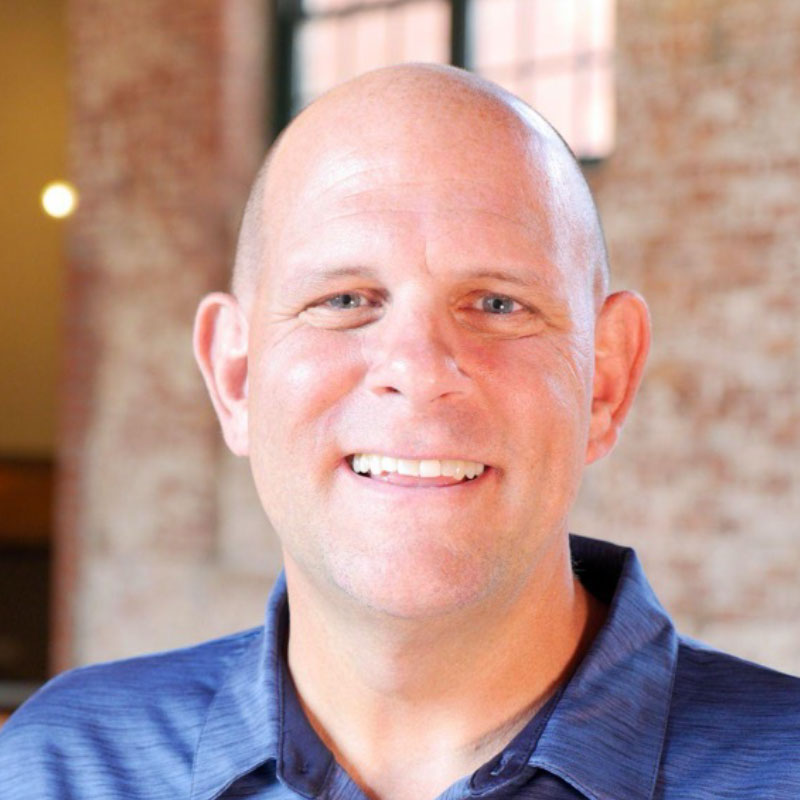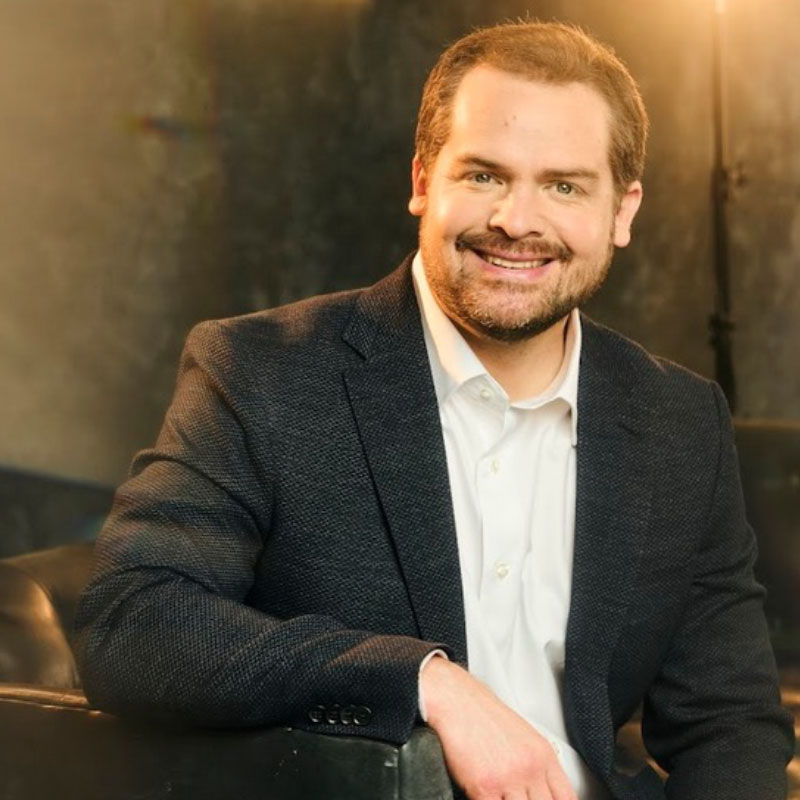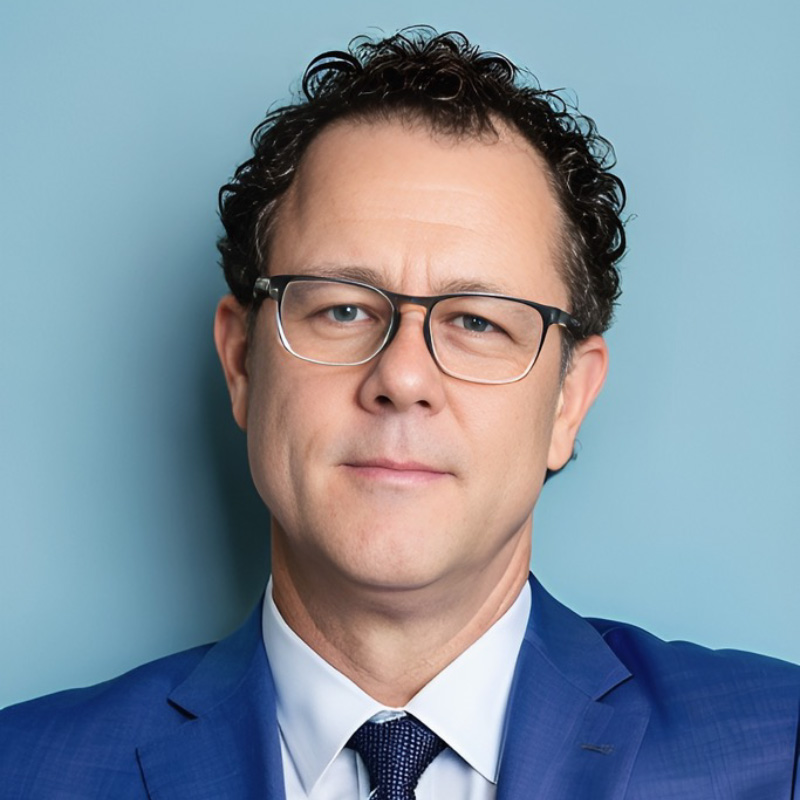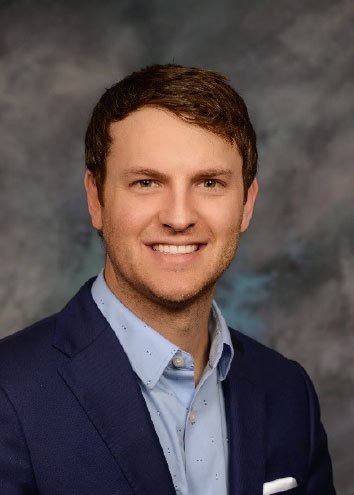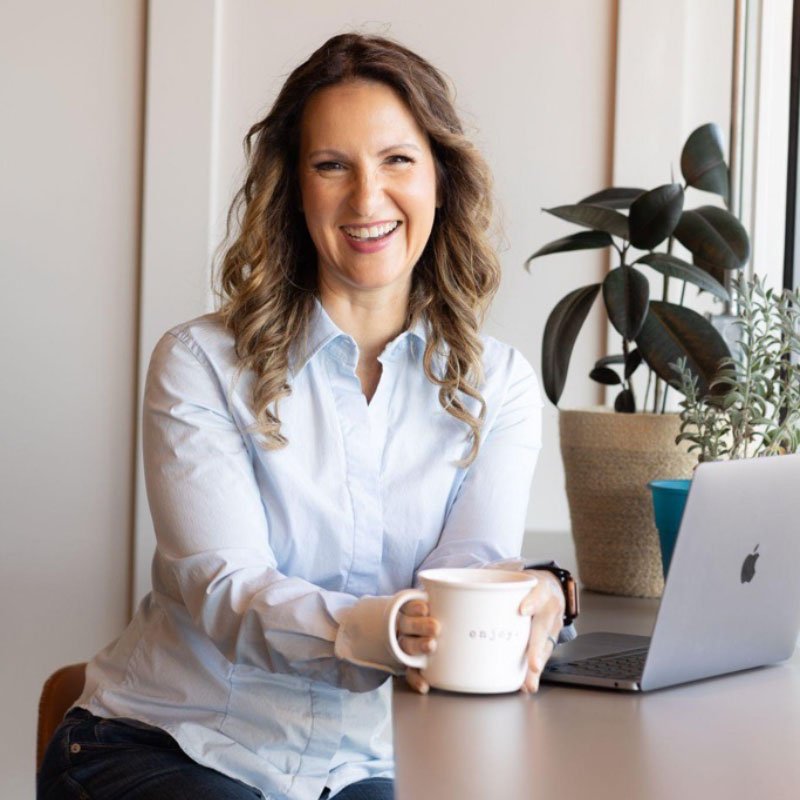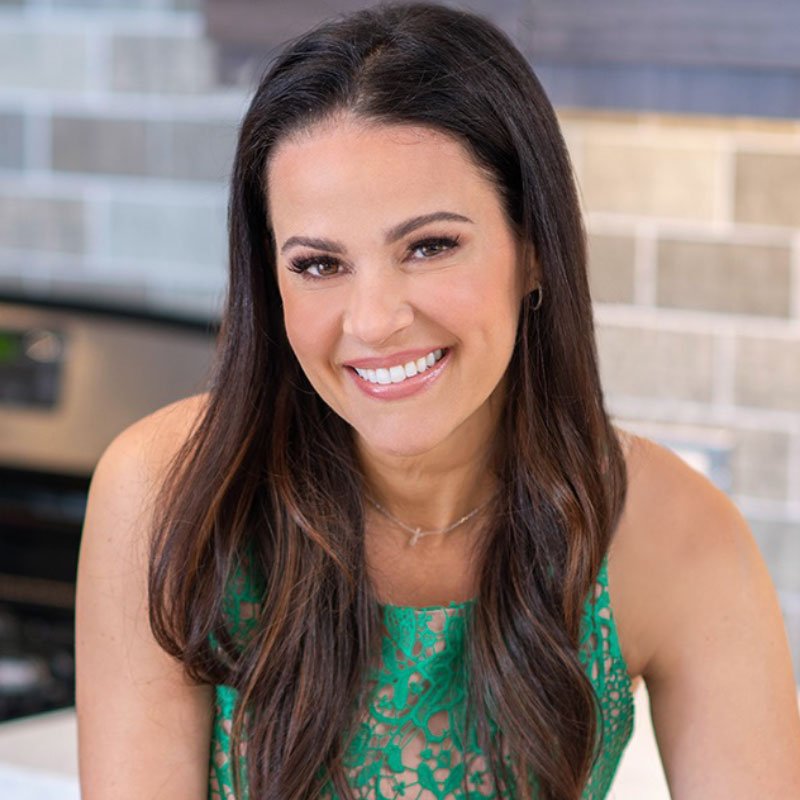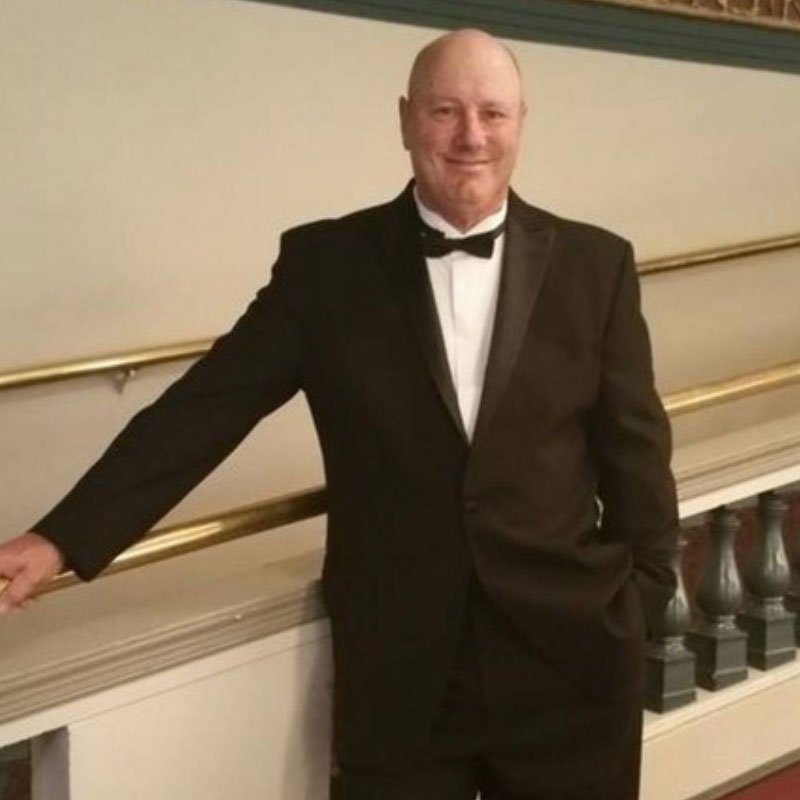#074
Share This:

In this episode of the Matt Feret Show I interview Jo Giese, an author and radio reporter, to discuss her experience overcoming a catastrophic injury. In 2018, Jo ruptured her Achilles tendon after suffering a fall in her home. After a botched surgery, Jo began a years-long journey of resilience, perseverance, and optimism as she received a multitude of treatments and physical therapies. Jo and I discuss her passion and love for hiking, and how her hiking experiences became a source of strength throughout this journey. We also discuss Jo’s upcoming memoir, ‘Keep Chasing Waterfalls: A Story of Adventure, Tragedy, and Defying the Odds,’ an account of her healing journey.
If you enjoyed this episode of The Matt Feret Show, you may enjoy:
A Breast Cancer Survivor’s Journey with Osteopath, Author and Entrepreneur with Helen Bullen
From Stroke to Strength: How Jo Ann Glim Found Wellness and Wealth in Recovery
Healing & Prevention in Sports Medicine with Dr. Kevin R. Stone
Listen to the episode on Apple Podcasts, Spotify, Deezer, Podcast Addict, Stitcher, Google Podcasts, Amazon Music, Alexa Flash Briefing, iHeart, Acast or on your favorite podcast platform. You can watch the interview on YouTube here.
Brought to you by Prepare for Medicare – The Insider’s Guide book series. Sign up for the Prepare for Medicare Newsletter, an exclusive subscription-only newsletter that delivers the inside scoop to help you stay up-to-date with your Medicare insurance coverage, highlight Medicare news you can use, and reminders for important dates throughout the year. When you sign up, you’ll immediately gain access to seven FREE Medicare checklists.
Quotes:
“This is what I'm thinking when I have this no Achilles and I cannot walk… I'm thinking about these things that have been the highlights of my life, going to Iwa Zoo, going hiking on that icy vertical path in Montana, and thinking, I can't even walk. I'm not even going to be able to do that anymore. And no, I was not going to settle for that.”
“I have a real can-do attitude. If somebody tells me I can't do something, I will figure out a way to do it. Just watch me… I talk to the guy I am working with, and I said, okay, what else can we add to this? He said, ‘Well, you can add medical acupuncture, not just your neighborhood acupuncturist, but a real MD acupuncturist.’ So, we added that, and we added several other modalities. I mean, it became my full-time job, recovery.”
“The real takeaway is that if you get a grim diagnosis, or even like that physical therapist who said to me, ‘You just have to understand you're going to be compromised for the rest of your life.’ Don't take it. Apply all the energy you have to healing and getting through that grim diagnosis because you can probably do it. Use me as an example. I did it.”
#074
Selected Link from the Episode:
Host’s Links:
All Things Medicare: prepareformedicare.com
Decoding Social Security: prepareforsocialsecurity.com
My Written Works on Amazon: www.amazon.com/stores/Matt-Feret/author/B09FM3L4WW
The Matt Feret Show YouTube: www.youtube.com/@themattferetshow
Network with me on LinkedIn: http://www.linkedin.com/in/mattferet
Follow me on X: twitter.com/feret_matt
See behind the scenes on Instagram: www.instagram.com/matt_feret/
Join our community on Facebook: www.facebook.com/themattferetshow/
Guest’s Links:
Jo’s Website: https://www.jogiese.com/
Instagram: https://www.instagram.com/giesejo/?hl=en
Facebook: https://www.facebook.com/authorjogiese/
X: @jogiese7
Amazon bookstore: https://www.amazon.com/stores/Jo-Giese/author/B001HP9D00?ref=dbs_a_mng_rwt_scns_share&isDramIntegrated=true&shoppingPortalEnabled=true
Full Show Transcript:
Announcer:
This episode of The Matt Feret Show is brought to you by the Brickhouse Agency. Brickhouse is a boutique independent health insurance agency that focuses on finding the right Medicare coverage for folks across the country. Matt's wife, Niki, is the heart behind Brickhouse. She's great at making confusing things clear and is passionate about helping people find a Medicare insurance policy that suits their individual needs. To schedule a free one-on-one appointment with Niki or a member of her team, head on over to brickhouseagency.com or simply call (844-844-6565), and someone will help you schedule a phone call or a Zoom meeting. The consultation is free because the insurance companies pay Brickhouse, not you. There's never any pressure or obligation to enroll. Your clearer, simpler Medicare journey is just a call or click away. brickhouse agency.com. Not affiliated with or endorsed by the government or federal Medicare program. Contacting Brickhouse Agency LLC will direct you to a licensed insurance agent.
Introduction to Joe Giese with Matt Feret [1:09]
Matt Feret:
Hello everyone. This is Matt Feret, author of Prepare for Medicare and Prepare for Social Security Insider's, guidebooks, and online course training series. Welcome to another episode of The Matt Feret Show, where I interview insiders and experts to help light a path to successful living in midlife retirement and beyond. Joe, welcome to the show.
Jo Giese:
Thanks for having me, Matt.
Matt Feret:
Tell everybody what you do, how long you've been doing it, and how you help people.
Jo Giese:
I'm an author, I write books. I also have been on radio, doing radio shows for a long time on NPR, and I think the way I help people, I think about the first time I was on NBC television in New York and I was doing shows on food and nutrition, and at the time people said, oh, is this going to be restaurant reviews? And I thought, no, I don't think so, because what I really wanted to do was help them, this was decades ago, understand the nutritional value of food and what maybe they should consider eating, that they weren't eating. I can remember back then I did a show on tofu. Nobody even knew what tofu was then. They didn't know tofu. I mean, really. And so I felt like I was helping people by doing that. And with my current book, which is called ‘Keep Chasing Waterfalls, A Story of Adventure, Tragedy and Defying the Odds.’ I really feel so strongly about this book because I was given a very grim diagnosis, basically, that I wasn't going to walk again. You can't see me walking right now, but I'm doing just fine. But I refuse to accept that diagnosis, and we can talk about that later.
Introduction to Joe Giese’s Story [3:14]
Matt Feret:
Well, how about now? Let's do that. So what happened?
Jo Giese:
Well, okay, we'll backtrack to what happened. I was sitting upstairs here in my office one November, late November afternoon, and here in Southern California, it doesn't usually rain in November, and it was really raining, and a friend of mine was downstairs ringing the doorbell, and I didn't want her to get wet out there. So I ran out of my office, I ran down the steps, I missed the bottom two steps. It was horrible. I went sailing horizontally and I could not get up. And it became very clear very quickly that I had ruptured my Achilles. And my husband, who was luckily here at the time, lifted me up, found some crutches, got me to the urgent care in our neighborhood with my friend along, and the doctor there took an X-ray, and she said, I hate to tell you this, but you've ruptured your Achilles completely. And I don't even know prior to that if I even knew what an Achilles was or what it does. And you need an Achilles when you see these primarily basketball players.
Matt Feret:
It just happened, Aaron Rogers of the New York Jets. It just happened.
Jo Giese:
Yeah, and I read that and I tell you, it gave me chills because I thought, poor guy, they say in the newspapers, he's going to be out the rest of the season. No baby. He's going to be out a lot longer than that.
Matt Feret:
I've never done this. I've heard of stories before. There's a loud noise or a snap or something, which sounds and feels gross just to even say it. Did you notice anything or did you just try to get up and something didn't work?
Jo Giese:
No, everybody talks about that popping sound. I think Kevin Durant, when he hurt his Achilles, he had that popping sound. I didn't have that sound. All I knew was I could not step on it. And then the part of the story that I hope others really learn from is that we went to Malibu Urgent Care. The doctor there says, you need to go see an orthopedist. I think you've got a full rupture here. So, in urgent care there, I felt so show-offy because I had the personal cell phone number of my orthopedic surgeon. And he had worked on a meniscus tear I have in my knee. I hike all the time. And so I call him up from urgent care. He says, sure, come in at eight o'clock tomorrow morning. So my husband wheels me in a wheelchair, and I still don't know how he got that wheelchair so fast, but he did. And then this doctor who will remain nameless, because I don't want to spend time in a lawsuit, he says, oh, I can fix this. He said, this is the part that I want viewers and you to really listen to. He says, oh, I can fix this. I used to do Achilles repair 20, 30 years ago.
So, what my husband and I should have done is we should have said, thank you very much. In the book, I happen to call him Fred because I don't want to use his real name. Thank you very much, Fred. Let's talk later. And then we should have researched Achilles tear repair specialist and found someone who was really current in Achilles tear repair. But we didn't. We were just so grateful at that moment that somebody said, oh, I've done this. I could do this. That was our first really big mistake. And some of it is a personality tendency that can have positive benefits. Like my husband is, I call him the extreme quintessential optimist. He will see really, he see the bright, optimistic side on any situation. I mean, really any situation. And I'm a little like that too, but he's more so.
Matt Feret:
Please tell me how he was optimistic about a full Achilles rupture.
The Surgery Mistake with Jo Giese [8:11]
Jo Giese:
No, what he was optimistic about is we have this doctor, this orthopedist we've known from previous. He'd had a knee replacement at the same office. So what he was optimistic about is that we knew a place to go. And so he feels good about this, but that was a misplaced optimism. What we should have done is we should have pulled back, but we were both so scared and nervous, I couldn't walk. What are we going to do? And here's Fred. Fred who says, oh, I can fix this. Come in tomorrow morning. And so the idea for others reading about this is to take a moment to pause and go, oh, thank you. And maybe we'll get back to you about that. But instead, we were just relieved that there's someone who says, oh, I can do this. Right.
Matt Feret:
And so, what happened?
Jo Giese:
Well, he did the surgery. He thought in the surgery that he had reconnected the Achilles. At least that's what he said he did. And then he went scuba diving in the Caribbean for ten days. And when he got back from the Caribbean, I went in, and I don't know if I should have gone in earlier than that, but that's when he asked me to come back after he had finished his scuba diving. And when the nurse undid all the gauze, it's all the way up to my knee. And she's about to put some steri strips on it. And he says, no, wait a minute. No, that's necrotic. Now, I don't even know if I knew the word necrotic yet.
Matt Feret:
I don't either. I don't think I know that word, but it doesn't sound good.
Jo Giese:
No. Necrosis means something is dead. Necrotic means it has died.
Matt Feret:
Yeah. It's a conjugation of a, not a good word when talking about your own body.
Jo Giese:
No, no. You want to stay away from necrosis. And so he thought at the time that what the necrosis was, what had died, was the wound around where he had supposedly reattached the Achilles. He just thought it was an exterior necrosis the wound, and it turns out he was wrong. So then I spend many surgeries just trying to clean and debride the wound, and it hurt like hell. My friends started calling me Scooter girl. I got around on a knee scooter.
Matt Feret:
Were you able to laugh at them or did you want to choke them?
Jo Giese:
No, no, no. I put a bell like kids have on their scooters, on my knee scooter I did. And to dinging it so that when I showed up, people knew. This was not a happy journey. So, I was trying to infuse some laughs in it so people would know I was coming, dinging, here we are. I guess that helped a little bit.
Treatment and Inner Strength After an Injury with Jo Giese [11:37]
Matt Feret:
You're a hiker. What's going on in your head at this point, when you're going through all this and your outdoor activity? Passion is something that you need your Achilles for.
Jo Giese:
Oh, absolutely. And maybe I'll backtrack a little bit and talk about that. I'm just not like a hiker that started hiking during COVID. It turns out like 3 million more people started hiking during COVID. I mean, what could they do? The restaurants are closed, they're hiking. I, on the other hand, have been hiking since I was five years old. Not just a COVID hiker, a hiker my entire life. I lived in Seattle right on the border of Lake Washington Boulevard. And there was a beautiful park, just a couple blocks from our house, barely. And when I was five years old, I would set off, and I guess I had seen photographs of people who had a pole over their shoulder with a little lunch thing on the end. And I would have my pole in my lunch thing, and I would over to the park. And the first thing I would do, and it turns out I never knew this until I started researching the book. That park was created by the Homestead brothers who did Central Park in New York. It's gorgeous. And just as a little five-year-old, I just thought, well, this is the place I love going. So I would swing on the swings a little bit, and then I would stop. There was a pathway that went to a forest in the middle of that park. I would hike up there by myself.
We had a retired cop who lived next door to us at the time. He told my mom, maybe you shouldn't let her go to that park by herself. I was always wearing a little, my mother would put me in fancy little Pinoforte dresses, and there I am in the park. And my mother said, ah, she likes it. And so she never stopped me from doing it. So I started hiking then. And then as I got older, and also my parents took me to, we were in Seattle, took me to visit waterfalls. One of the biggest falls is just outside of Longest Falls, the ways to measure waterfalls, how far they are across the top or how long they are down. And they took me to Snoqualmie Falls, which is northeast of Seattle. And I fell in love with the idea of waterfalls, how refreshing it is, how you can't think about anything else when, even as a kid, when you're standing next to a waterfall. And I love to take my friends to them because I consider they're like therapy. When you are there, you don't need a therapist. Also, I have a swing in my house inside the house, and the swing does the same thing, really. In a way, it's not as refreshing as being at a waterfall. But when you're swinging on the swing, the first thing that occurs to me is you don't need a therapist. You don't need any, you're just happy. And that's the way I feel at waterfalls, just happy.
Matt Feret:
So you can't hike waterfalls at this point, and it looks like you may not be able to.
Jo Giese:
Well, I couldn't walk, and then they kept doing more and more surgeries. And I was, it's really fascinating to look back on it because I wasn't depressed, because I refused to take this as an answer for anything. And I started adding more modalities to what I could do. Well, no, I've jumped ahead a little in the story because first, Fred first has to clean this wound, which looks all nasty and it's all crunchy. And so he's got it with these tweezers. They take the crunchy scab off of it, and it was really dreadful. And then I'm not getting anywhere. And then I also do, at one point he says, maybe we should try hyperbaric oxygen chamber now.
Matt Feret:
Fred, the doctor, right. And at no point yet you've gone like, maybe Fred doesn't know what he's doing, or are we getting there?
Jo Giese:
We're almost getting there. And the hyperbaric oxygen chamber is like a glass coffin you go into. And the one that I went into, and they use it a lot for burn victims. They've really, really scalded their skin. And they go in and this with all this extra oxygenation in the air, it helps their healing. And so the idea was it was going to help my ankle, but I am also claustrophobic. And so I told the nurse there, and I chose this one really carefully because some of them, there's only one person in there and God, that's like a casket. And so I chose one at UCLA. That was big enough for eight people. And actually I made some friends in the hyperbaric oxygen chamber.
Matt Feret:
Yeah, make friends anywhere.
Jo Giese:
Make them where you can. And they had been going there. Some of them had already been going there for two weeks or something. I think I was supposed to have twenty sessions there. And I got so upset. I'm claustrophobic. And you get into this tube, and in this one there were seats on the side on the aisles. And then they tell you how long you're going to be in there. And so one of the first times he said, okay, so we'll go. And they submerge it. They go down to a different sea level, different pressure than what you have, in this case, in L.A on land. And so he says, okay, we're going to go down and you're going to be in here for, let's see, I think the first one, you start at 90 minutes, but then halfway through they stop it and actually ends up being more like two hours. And I go two hours. I mean, I'm someone who can't even take an elevator and I'm going to be stuck inside this. And there was a really lovely woman there who, this was one of her last sessions, and she knew how upset I was. And so she gave me a cold washcloth to put on my hands, and she held my hand throughout most of the session was how I made it.
Matt Feret:
After all that, did it work? Did it help?
Jo Giese:
Well, I did that. I also went to a wound doctor who, he was a medic in the Marines, I think. And I sort of felt like his procedure, the way he worked, he should have stayed in the Marines because he was so rough and gruff, and I thought, keep with the army mean or just leave. And so then finally I got to a really good tender doctor, and of course it takes five times as long for them. They want to zip through, they get paid, and then I'm out. But they took a lot longer. And then finally he said, okay, it's time to do surgery because we're going to remove all the scab and get it out of there. And he's still thinking that they're going to remove the scab. The Achilles has been reattaching, and this is going to be very really positive. Well, what happened was, and now this is many, many, many weeks later, so they did the surgery and then he comes into the recovery room and he says to me, he gives me a photo of my Achilles. He has a photo of it. And he says, do you want to see it? It's a slimy mess. And I said, well, yeah, I'd like to see it, I guess. And it never reattached and it curled in on itself and died.
Matt Feret:
Oh gosh.
Jo Giese:
So when you see these athletes, Kevin Durant or the football player, and they talk about their Achilles, they still have one. I had lost mine. It had died. And so, then the question is, how the hell do you proceed? At this point I'm on a knee scooter. And so then I start adding modalities. I add an acupuncturist. And all of these things are not really prescribed for someone who has no Achilles. It's just kind of working in that wound area. And finally, the doctor who really messed me up, botched the surgery, sent me an email, and he always said it was my fault that I put too much ice around the wound to chill the leg off because of the pain.
Matt Feret:
I don't think I like Fred very much.
Jo Giese:
No. And this is a fallback position for doctors. If they know they're to blame, but they can't do anything about it, they will blame the patient. In this case, I had little ice crystals around the area that had formed. He said, it's my fault that I put the ice to near. Well, I never put the ice tube near. And I read afterwards that somebody who has a necrotic wound, that part of the process is you get these ice crystals around it. So Fred knew that. So I finally meet a doctor who is going to really be helpful, but the first thing he has to do is clean out the wound.
And at that point I'm going, no, we are not getting anywhere. We're not even trying to do anything with Achilles because that's dead now. We're just working on the wound. And all this time, I never walked. And so that's when I said, this is unacceptable. My husband and I had all these trips planned. We were going to go to Norway in winter because this happened in November, 2018, and we were going to go to Norway that winter and see the northern lights and hike through the snow. And all of a sudden that looked like that's not going to happen. So, I saw an acupuncturist, an MD, a medical doctor who did acupuncture in Beverly Hills. Nobody I saw had ever worked with anybody who did not have an Achilles. So this was all, if somebody said, I'll work with you, but they always said, I've never seen this condition before.
Matt Feret:
So you're adding, you've added modalities as you said. So you've gone out and checked out some other healthcare providers outside of surgeons, so to speak, and you have no Achilles, and you've got a wound that's fixed. So did new doctor, did your Achilles ever get fixed or do you still have no Achilles?
Jo Giese:
No, I have no Achilles. And what happened, this is part of adding, this is the part where at one point Fred contacts me, he's the one who botched me up, and he contacted me and he had to have known how bad off I was because he gave me the name of a facility that's the other side of the valley. It's 40 miles from here in LA traffic. And what they specialize in is spinal cord injury. Patients who cannot walk, they all get wheeled in either on a gurney, in a wheelchair, on crutches. They have an orthopedic problem and a neurological problem. Luckily in my case, it was only orthopedic. I didn't also have a neurological problem. And so old Fred says, you might want to check out this place. And so I call up the director and the owner and tell him what my situation is. And he has a PhD in sports medicine, and he is really top notch. And he looked at my situation, he sat down with me when I crutched in, limped in and said that he had never worked with anybody who doesn't have an Achilles, but he's fascinated by this. And he wants to use this as an opportunity to put everything he knows into place.
And he doesn't know if this is going to work. But when it started to work, he told me years later, I was there with him for two and a half years, three days a week. I mean, I got to know all these other spinal cord injury patients. And when toward the end of this story, I'm starting to walk again a little bit. I said, why did you think I would succeed? Where other people don't, if they have an Achilles rupture, most people are not walking ever again. And he said, because of your attitude, you would not settle. He said, some people when they come here, and this is a pretty grim place if people aren't walking there, and these are the people you're exercising around, this is not your normal gym. And he said, when people come here, some of them come here, their parents or their family or their doctors send them here, but they don't want to be here and they don't want to do the work.
And he said, that's most of the people who come here. And then some come, but they're not really interested in being here. He said, about 5% who walk in, you can tell instantly that they're going to do the work and do anything that will help them walk again. And he said, and you were in that 5%. And he said, you weren't just like 1% of that. He said, you were 0.01% of people who have a torn Achilles. But you were determined. And let me tell you to put it in context, why I was so determined.
Passion and Determination After an Injury with Jo Giese [27:26]
Jo Giese:
You talked out, I am about, in the beginning, I'm a hiker and I have gone on great, wonderful hikes in small little hikes. And the idea, when my husband and I were introduced several years ago, he had a place in Montana, and one of my favorite things to do in Montana is to hike to a specific waterfall there near Big Sky. And a friend was visiting one Christmas. I said, let's go now. I'd never gone in winter. And the trail down to the waterfall, first of all, it's steep. It doesn't have a guardrail. It should. And the fall off is very vertical and in winter with all that ice. But we had crampons on the bottom of our icing boots on the bottom of our hiking boots, and we had the hiking poles and we hiked down that vertical path in winter. And that's just memorable. Now. It's not anything everybody would want to do.
Matt Feret:
That's your thing. That's your passion. That's not just hiking, going on a walk. It's going on big expeditions.
Jo Giese:
Right. That waterfall was something I'd never seen before. That waterfall, the whole wall of the waterfall was frozen in winter was turquoise ice. I mean, it was just gorgeous. I mean, it was just like a religious, spiritual moment. It was so beautiful. And afterwards, my friend who had gone with me who had never done anything like that before, she said, ah, that was like a cathedral. I said, she got it too. She felt it too. But one of the other hikes that I've done thinking of what I'm going to lose if I can't walk again, about four months before this injury, my husband and I were in New Zealand and I had gone helicopter hiking and have you ever done this?
Matt Feret:
No, no. I'm lucky to get out on the A.T. every couple of years.
Jo Giese:
Okay. Alright. Well, helicopter hiking in New Zealand. New Zealand is a big place. And it has for a hiker, what's so marvelous, it has no predators, there has no bears. Like in Montana, you can come around a corner and you can see a bear.
Matt Feret:
Oh, oh yeah, I've run into those. Right. Yeah. I'm a big hiker too, by the way. I haven't done the helicopter hiking thing. That sounds amazing.
Jo Giese:
So, New Zealand has no bears. I am snake averse. It has no snakes. So I thought New Zealand's going to be perfect for me, and I've never done helicopter hiking. And New Zealand also has vast swatches of land that you can't get to anywhere else. So my husband was going helicopter fishing, so he went off in the helicopter. First, they sent it back to me and with my guide, and we went out helicopter hiking in a really remote area. And they dropped us off very close to the stream bed. But it was so rocky, the creek bed was so rocky that you couldn't put your boot down safely without feeling like the rocks are coming up into your boot. And you had be, of all the hikes I've done in my life, that was probably the one where you had to be in the best shape of your life.
Otherwise, you're going to break your ankle, you're going to fall, hit your head. I mean, it really, it was had an element of danger involved in it, but it was so much fun. And the person I was hiking with had also brought a little picnic lunch. We went to one hike first, a little hike that was to a waterfall that was more vertical, and it was just smaller. And then we went back to the creek and we walked to the real one. That was just magical. And then the best thing about helicopter hiking is you don't have to trudge all the way back through that creek bed with the stones pointing up in your shoes because the helicopter comes and picks you up. Thank you.
Matt Feret:
So you've got all these hiking experiences. It's very clearly a passion of yours. And then you flash back to the reality of you're being told you may never walk again. What was the mental, and then I heard when you said your doctors in this facility said you were determined, and obviously you very much were, but how did your mentality around focusing on that passion and getting back to it like a professional athlete might? Right? You mentioned Kevin Durant. There's no way that guy could have come back without an enormous amount of dedication to getting better. And even not only walking, but getting back into playing. I mean, he's still one of the best players in the entire NBA. It takes an amazing amount of drive to get past this. Well, this is the way life is now. Or, well, I could just retire, or, well, I could just not hike anymore. How did your mental gymnastics fare during all this time? How did you convince yourself?
Jo Giese:
I don't think I know. I have a real can-do attitude. If somebody tells me I can't do something, I will figure out a way to do it. Just watch me. Don't tell me I can't do that. Once I was over at Core where all these spinal cord injury patients are learning to walk again, and I see them and I talk to the guy I am working with there who really became my angel. And I said, okay, what else can we add to this? And so he said, well, you can add medical acupuncture, not just your neighborhood acupuncturist, but a real MD acupuncturist. So we added that and we added several other modalities. I mean, it became my full-time job, recovery. And I would drive from our house here over to the valley. It's 40 miles one way. And I would, in the beginning, I couldn't drive myself. I wasn't well enough to do that. But then when I started driving myself and I would come home and tell my husband, I said, that's the most dangerous thing I've ever done in my life. Drive on the Ventura Freeway to this place in the valley because all the cars, even the big rigs, are going by a zipping by at 80 miles an hour. And I would just hog the snow slow lane and just pray that nobody crashed into me. Yeah.
Matt Feret:
How do you use the gas and brake with the no Achilles?
Jo Giese:
Well, it was my left leg.
Matt Feret:
Oh, okay. Well, there you go. Thank goodness.
Jo Giese:
Yeah. And so I went there three days a week for two and a half years. I mean, that was my full-time job. And people there could see me improving the staff and everything. And they would say, you've got some pep in your step today. And I remember the first Christmas, this accident happened in November of 2018, and then the next Christmas after that, in 2019, there was a Christmas party at Core. And so the place where I went that enabled me to finally heal myself. And I stood outside the Christmas party. It was dark parking lot. I limped across the parking lot, and I stood outside and I looked inside at all these people who were at the Christmas party. These people were all either in wheelchairs or they were at crutches, or I was going to say somebody was even on a gurney, but I don't think so. Not at the Christmas party.
And I looked inside at all of them, and I go, boy, this is a real disabled population. I feel so, I feel so bad for them. And then I realized, Hey, wait a minute. You are part of this population and you've been part of this population for over a year now you are disabled too. And I didn't like thinking of myself that way, but it was true. But I just want to say about hiking to waterfalls that I have my favorite waterfalls the hike to. And shortly before this accident, I had been in Argentina and Brazil, and we have six grandchildren who we take on trips. We used to do domestic trips, and they got older. We had to make it more interesting. So we take them on, we started taking them on international trips. So we took miles. Our youngest one, I have a photo. This is one of my favorite waterfalls in the world. This is Iwa Zoo in Argentina, in Brazil. And it is the longest waterfall across the top, a mile and a half. And it was totally memorable. And because we were staying in the park where Iwa Zoo is, we got to go there before all the tourists came in on the yellow buses. And then previously we'd go in there, we could take pictures like this. And then when the tourists all came in and held their cameras up, you couldn't take a photo of anything. And our young grandson who was with us said, this is an Izo. He said, it's a zoo. And he was right about that, that it was just too crowded. But it was wonderful to see that waterfall. Another, oh, this is me. This is a photo of me about to board the helicopter to go helicopter hiking and then one of my very favorite waterfall hikes in the whole world.
And see, this is what I'm thinking when I have this no Achilles and I cannot walk. And we had recently been to Iceland, and there is a waterfall there. This doesn't happen very many places in the entire world. And that you can walk behind the waterfall and in the parking lot, they sell these little raincoats that are just like saran wrap. You're just putting on some Saran wrap because when you go behind the waterfall, you are going to get wet. My husband and our grandson and I, we got these little saran wrap raincoats, and also it's very slick and slimy and muddy there. The water is always flowing. And so I'm thinking about these things that have been like the highlights of my life, going to Iwa Zoo, going hiking on that icy vertical path in Montana and thinking, I can't even walk. I'm not even going to be able to do that anymore. And no, I was not going to settle for that.
Matt Feret :
So you go through treatment, you come out months later, what are you able to do and what type of rehab do you have to do to get back to today?
Jo Giese:
Okay, let me just tell you one other thing that happened during that rehab. We were in Montana that summer, and what I was trying to do was to walk again, just to take one step after another. A big achievement for me was to walk down our driveway. It was 559 steps. And when I did that, I thought, my God, but then I was seeing a physical therapist there in Montana, and she said, you have to accept that you're going to be compromised for the rest of your life. And when she said that I really wanted to hit her, and I've never hit anybody in my life, but I thought, how dare you rob me of hope and rob me of my ability to recover by saying, you have to acceptably compromise for the rest of your life. And I thought, you just watch me. I will not. And I also reported her to the facility there. I said, you can't rob somebody of hope.
So I'm doing all of these things. I start very tentatively walking again. I also went to, I had by that point found the name of a doctor in New York City who specialized in Achilles repair, and I should have gone to him first. And so it is interesting. His name happens to be John Kennedy, and he's also very tall and attractive. And so my husband and I went there and the first thing all these doctors do, of course, is they ask me to walk. I walk down a hallway in their office or something, and I'm just limping and lurching. And what this doctor has done, John Kennedy, is he has pioneered Achilles repair by using a tendon in the big toe and making a new Achilles. But he looked at my foot and my ankle and he wouldn't go near it. It was just such a mess. And he said, put all of your energy into physical rehabilitation and see how much you can gain in two months and then maybe call him back.
I don't know what he would've done. And that's when I really put my heart and soul into the physical rehabilitation and drove three times a week, 80 miles a day over there to be able to walk again. But I'll tell you what is much more typical. I saw a letter to the editor in the New York Times and the guy signs his letter that he does not have an Achilles. He was in Florida. And since I'd never spoken to anybody else who did not have an Achilles, I found him. I am a reporter. I called him up and said, tell me your story. And he told me his story and he went to do a little bit of rehab, but he happened to be 73 at the time, and I was actually 70 at the time when I ruptured my Achilles, and he decided not to go in and to do everything I'd done.
He decided it was time to just throw the ball in. I went, I could not believe it. I'd spoken to him on the phone for probably an hour and a half, and I said, you're not doing these things. The hospital near where he lived in Florida had a rehab program that he had easy access to. I said, you don't care. And he said he just didn't want to put the energy into it. And for me, I thought, what else am I going to put my energy into? I mean, I want to keep hiking to waterfalls.
Matt Feret :
And talk about, I guess the moral of the story in the book. It's one of perseverance, right? The title ‘Keep Chasing Waterfalls’, a story about adventure, which you've covered, tragedy, and then defying the odds. Talk to me about, you mentioned the whole percentage piece, but the message of the book for people interested in suffering, a catastrophic injury later in life that you can go to ways you can mail it in and say, eh, I guess this is just going to stink for the rest of my life. Or you can do what you did, which is, darn it, I really want to remain active and I want to hike and do the things I find joy in and I'm going to work extra hard to overcome them. What's the moral of the story of the book?
Jo Giese:
I think the real takeaway is that if others have a grim diagnosis and doctors spew these grim diagnosis out with quite freedom, not necessarily understanding how they're going to land on you emotionally, but if you get a grim diagnosis, or even like that physical therapist who said to me, you just have to understand you're going to be compromised for the rest of your life. Don't take it. Apply all the energy you have to healing and getting over, getting through that grim diagnosis because you can probably do it. Use me as an example. I did it.
Matt Feret:
I love it. We've covered a lot. Talking about overcoming injury, talking about the mental hurdles you’ve got to get through, and also the doctor hurdles you've got to get through in terms of making the correct decisions and seeking out multiple avenues. Let's say. What questions around your book, around your experience did I not ask you that I should have?
‘Keep Chasing Waterfalls: A Story of Adventure, Tragedy, and Defying the Odds’ with Jo Giese [45:52]
Jo Giese:
Well, this is my current book that's out, and it's ironic because the book that was coming out exactly at the same time as I ruptured my Achilles is ‘Never Sit if you can Dance.’ Well, I was not dancing. This is something, this came out for Mother's Day lessons from my mother, and this is what my mother said. If she saw me sitting, she'd say, don't sit, get up and dance. She and my dad danced every night before dinner usually. So it's a fun, joyous book, and I think we all need more joy in our lives. Now, my current book that I am working on, the waterfall book, and this is the front of the book right now, my agent is looking for a home for it, and we wish him well.
Matt Feret:
Yep. And so hopefully by the time this show comes out, a little found of home and we can go buy it. Jo, anything else that I should have asked you that I didn't, about your experience and the message that you want to convey?
Jo Giese:
Well, here's something. One thing we know is that this category didn't really exist too much before the category of aging hikers. But now there are different hiking groups, like over-sixty hikers, and there are people of all ages out there hiking and all ethnic groups, all ages. One of the people that I hiked with years and years ago, she used to hike with her husband, and then she was the leader of our little neighborhood group. We would hike in the Santa Monica Mountains here. I mean, these were real hikes. And at a certain point, unfortunately, her documentary filmmaker husband died, and then I still hiked with her, and then all of a sudden she was leading the group and she started wearing blue eyeshadow as she led the group. That's really interesting. She never dressed like that, and it turned out that she had a crush on somebody in the group, and actually they ended up together. So I guess I hadn't intended for this to be the takeaway, but it could also be a way for older people maybe to meet their next partner.
Matt Feret:
Perfect. Joe, thanks so much for being on the show.
Jo Giese:
Oh, thank you, Matt. It was a real pleasure and you've got a great smile.
Matt Feret:
Thank you.
Matt Feret:
The Matt Feret Show related content, publications, and MF Media LLC is in no way associated, endorsed, or authorized by any governmental agency, including the Social Security Administration, the Department of Health and Human Services, or the Centers for Medicare and Medicaid Services. The Matt Feret Show is in no way associated with authorized, approved, endorsed, nor in any way affiliated with any company, trademark names or other marks mentioned or referenced in or on The Matt Feret Show. Any such mention is for purpose of reference only. Any advice generalized statistics or opinions expressed are strictly those of the host guests of The Matt Feret Show. Although every effort has been made to ensure the contents of The Matt Feret Show and related content are correct and complete flaws and regulations change quickly and often. The ideas and opinions expressed on The Matt Feret Show aren't meant to replace the sage advice of healthcare, insurance, financial planning, accounting, or legal professionals.
You are responsible for your financial decisions. It is your sole responsibility to independently evaluate the accuracy, correctness, or completeness of the content services and products of and associated with The Matt Feret Show, MF Media LLC, and any related content and publications. The thoughts and opinions expressed on The Matt Feret Show are those of the host and The Matt Feret Show guests only and are not the thoughts and opinions of any current or former employer of the host or guests of The Matt Feret Show. Nor is The Matt Feret Show made by on behalf of or endorsed or approved by any current or former employer of the host or guests of The Matt Feret Show.


